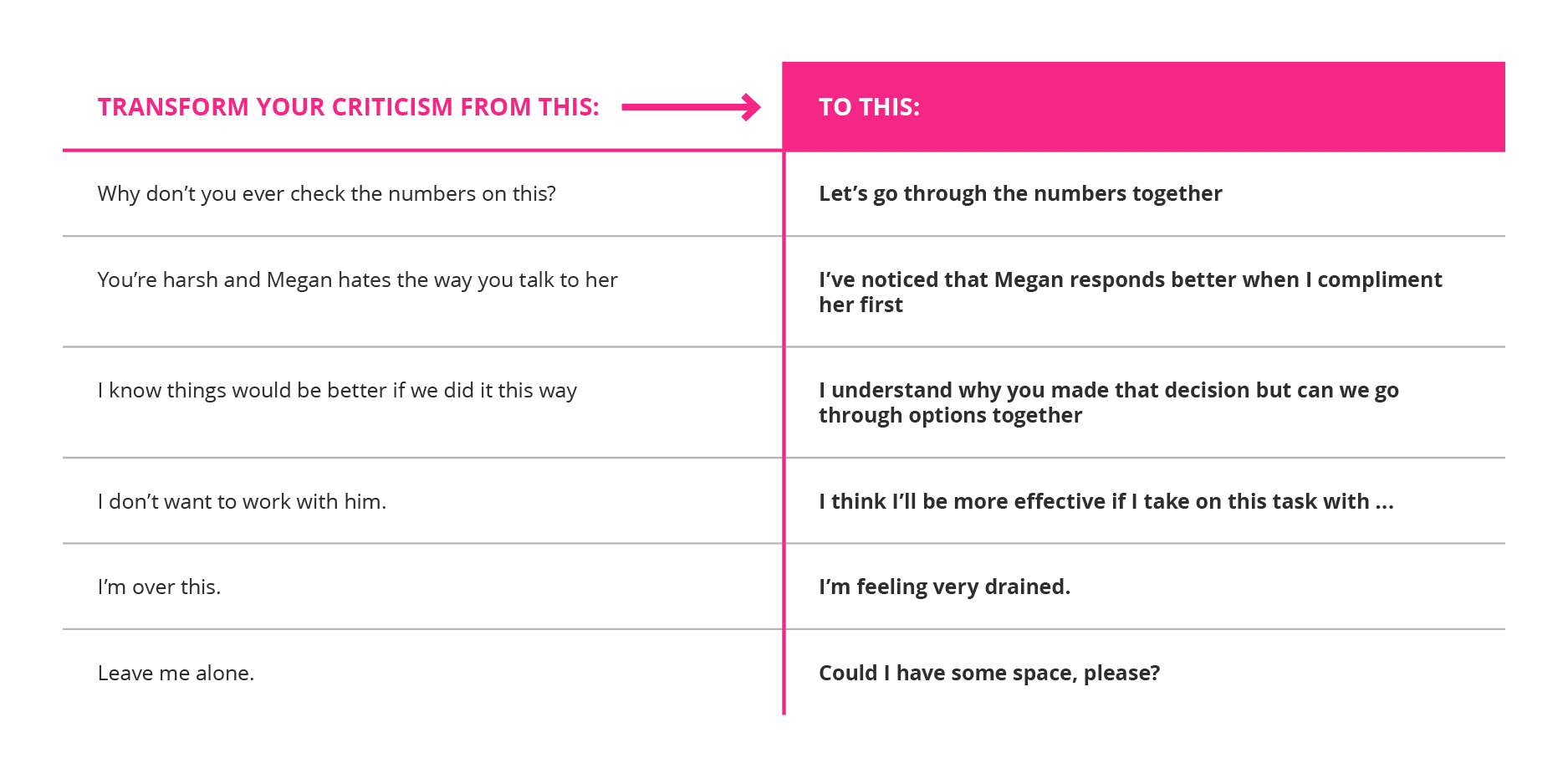Why criticism is good for you (and when it’s not)
Nobody likes to be told that something they have slaved over for days didn’t quite hit the mark. And even if you know some of your work probably deserved some extra love, criticism always stings.
So, what’s the deal with criticism? Is it a necessary evil for effective communication and professional growth, or is it merely someone else’s way of feeling better about themselves?
The skill with which you communicate less-than-favourable feedback on someone’s work could mean the difference between breaking a colleague.
Here are a few ways constructive criticism it can help you, and some advice on when to let it go.
Understanding the Difference Between Criticism and Feedback
The difference between helpful and hurtful is understanding whether you are providing criticism or feedback. When you provide feedback you are coaching someone, ensuring they improve themselves. Delivering criticism on the other hand, leaves people feeling incompetent.
Unsure of how effectively you’re communicating? Transform your critical phrases into feedback that inspires change. Here are word-for-word examples of how to optimise your communication:

4 Reasons to Listen to the Critics
1. It’ll help you understand the ways your work could be improved
No one is perfect. The only way to know where you could improve is to encourage an open channel of communication. If you are open to suggestions around how you might approach things differently, you’ll be perceived as a more authentic leader and it’ll be easier for you to rally a team around a common goal or towards improving shared processes.
2. It’ll give you new perspective
When you’re working on the same project for long periods of time, chances are you’ll lose sight of things that aren’t working. Inviting feedback into your project will help you gain a fresh pair of eyes and improve the way forward.
3. It’s a sign that people are genuinely invested in your growth
Remember, giving someone negative feedback is almost as hard as being on the receiving end. You know what you’re saying is going to hurt the person but you do it anyway. If people didn’t care about your success, they wouldn’t waste their time trying to improve the way you work. Hear what they have to say – they could be the difference between success or failure.
4. It’ll teach you a lot about yourself and other people
How do you react when someone starts with negative feedback? Receiving criticism helps you learn about areas of your work that could be improved but it also helps you manage your own emotional reactions, helping you improve your leadership qualities.
On top of this, you’re also gifted insight into the other person. What upsets them? How do they approach difficult situations? This will improve your relationship with them as you find effective ways of communicating with them and work towards shared goals.

When someone points out something that’s not working, hear them out. External eyes on a project can help you solve problems you weren’t even aware existed. But, don’t take everything you’re told at face-value. You know the project you’re working on better than anyone else. Their solution might not be what you need but alerting you to the problem could help you succeed.
When to Let it Go
The most powerful tool you have in your arsenal when it comes to communication? Silence. When you listen to other people, you’re able to get the most out of what they have to say. It also proves that you take them seriously. But how do you know when criticism is not worth your time or when to take it with a pinch of salt?
1. If it makes you unhappy for a prolonged period of time
You work hard. It hurts to when someone points out your flaws, but usually you can handle it. If the feedback you are getting is something that you’ve worked to change but haven’t been able to, and the fear of it is holding you back, it’s better to let it go. The prolonged unhappiness it brings you is more detrimental to your success than a flaw someone else has pointed out.
2. If it’s too personal
Not everyone has pure motives when it comes to giving you feedback. If the criticism you’re receiving really stings, think about what that person is saying. Are they talking about something that directly influences the way you work or your behaviour in a specific situation? Or are they more concerned about you come off as a person? If feedback is based on something intrinsic to your personality, it’s not important enough to worry about.
If it’s not impacting the bottom line of the business, it’s none of their business.
3. If they aren’t providing solutions
Criticism needs to be partnered with a solution to help you correct the situation. If it’s not, the person is not interested in the success of the project enough to warrant getting involved. Ask the person providing you with feedback for their advice before you worry about solving the issue alone.
Want more thought-provoking content?
Access career advice related to your industry below.